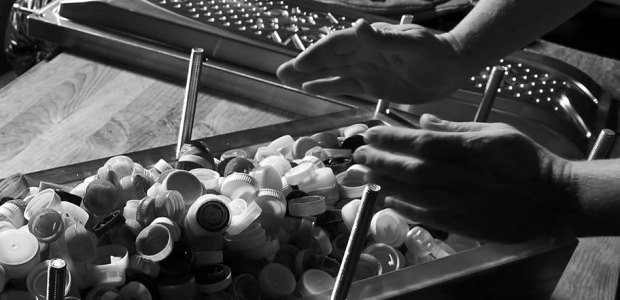
Four Ways Businesses Are Creatively Recycling Waste
Many businesses are trying to play their part in helping the environment. This proves that the ability to be creative and think outside the box can truly have admirable benefits that help both people and the planet — could you become more ethically focused?
More than 2.1 billion tonnes of waste is produced annually, with this figure expected to grow to more than 4 billion by 2100, damaging the planet in the meantime. Encouraging people to recycle has became a primary focus for authoritative bodies around the world, with various schemes and initiatives introduced to help combat the waste issues.
However, waste is not only deposited in landfills and buried deep underground; some of it ends up in our oceans illegally. According to some studies, 1.4 billion pounds of rubbish ends up in our waters each year, which is having a profound impact on marine life — so much so, scientists have estimated that the amount of plastic will outweigh the fish by 2050.
The level of waste is a result of 99 percent of the items we purchase being disposed of within a six-month period. Because of this, more businesses around the world are looking at more sustainable ways to create their products in a bid to help better the world that we live in.
Here, Traidcraft shop, handmade gifts, have taken a further look into what measures certain businesses have in place to combat waste.
1. Recycled tableware – Traidcraft Shop
Having an impact on lives and landscapes since 1979, Ngwenya glass crafts beautiful glassware throughout eSwatini. Originally set up as a Swedish Aid Project, Ngwenya Glass now trains more than 60 people in the art of glassblowing to create one-of-a-kind pieces of ethical homeware.
Every day, Ngwenya Glass proves that a commitment to protecting the environment can exist hand in hand with commercial success. All products are handcrafted from 100 percent recycled glass, sourced from throughout eSwatini by local people. Ngwenya Glass encourages communities to come together for cleanup days along main roads in the area to gather discarded glass. Most of the glass used to be soft drink bottles!
Ngwenya Glass pay these glass-gatherers by the kilo while empowering them to conserve their environment, too. The business also works with local schools to educate young people in the importance of environmentalism and recycling and supports schools with building materials and learning resources.
2. Naked products – Lush Cosmetics
Promoting ethical buying, fighting animal testing and crafting their products by hand are only some of the measures that Lush Cosmetics stand for, hence why they're classed as one of the most environmentally conscious brands within the UK.
According to some figures, each person uses around 200 pounds of plastic a year — 60 pounds of which is thrown away instantly. This has highlighted a huge problem and put great responsibility upon businesses internationally. Through innovative design, Lush Cosmetics was able to develop several products that didn't require packaging to sell.
From shower gels to shampoos, there are plenty of naked products available. And all of the plastic used by Lush is 100 percent recycled.
Listed above are only a few of the many businesses trying to play their part in helping the environment. This proves that the ability to be creative and think outside the box can truly have admirable benefits that help both people and the planet — could you become more ethically focused?
3. Skateboards made from plastic bottle tops - Wasteboards
Wasteboards creates skateboards in Amsterdam with a very eco-friendly twist. Research suggests there are 20,000 plastic bottles bought every second, giving Wasteboards an idea to collect plastic bottle tops to create the deck of the skateboard.
Benefiting the environment, as research has suggested that there are 20,000 plastic bottles are being bought every second, this forward-thinking company collects plastic bottle tops to create the deck of the board. Wasteboards also believes in helping out the local community and encouraging people to collect bottle tops from a range of events to ensure they can continue the development of unique skateboards. Fishermen who use the canals in Amsterdam are also asked to collect as much as they can.
One part of the appeal is that each board is handmade and molded into a design that creates an aesthetically pleasing product for a young demographic. This company loves the idea of being sustainable and being able to sell a sustainable product, so even if your wasteboard breaks, they'll recycle the broken plastic and create you a new one!
Fjällräven: Re-Kånken and Eco-Shell
Originating from a small town in Sweden, the Kånken bag makes nature more accessible for adventurers while retaining a focus on the simplicity of their products. Although they pride themselves on simplicity, the crafting of the bag is much more complex. To play their part in helping the environment, they released the Re-Kånken bag, which is made entirely from polyester recycled from plastic bottles. It is dyed with SpinDye technology, which "radically reduces" the amount of water, energy, and chemicals used.
The Eco-Shell is another product from Fjällräven that avoids using materials that harm the environment. Eco-Shell is also made from recycled polyester and, unlike many other products on the market, perflourinated chemicals are not involved in the creation.
Sources:
http://www.theworldcounts.com/counters/shocking_environmental_facts_and_statistics/world_waste_facts
https://4ocean.com/blogs/blog/how-much-trash-is-in-our-ocean
https://ngwenyaglass.co.sz/history
http://www.artemisamsterdam.com/en/design-art/exhibitions/plastic/451-wasteboards
https://www.shemazing.net/saving-the-earth-one-bath-bomb-at-a-time-lush-expands-naked-packaging/
https://uk.lush.com/products/lushopedia/twilight-0
James Patefield is an Outreach Executive at Mediaworks Online Marketing and covers a number of clients across a wide range of business sectors, helping them to grow their online portfolios through engaging content. Email: [email protected]